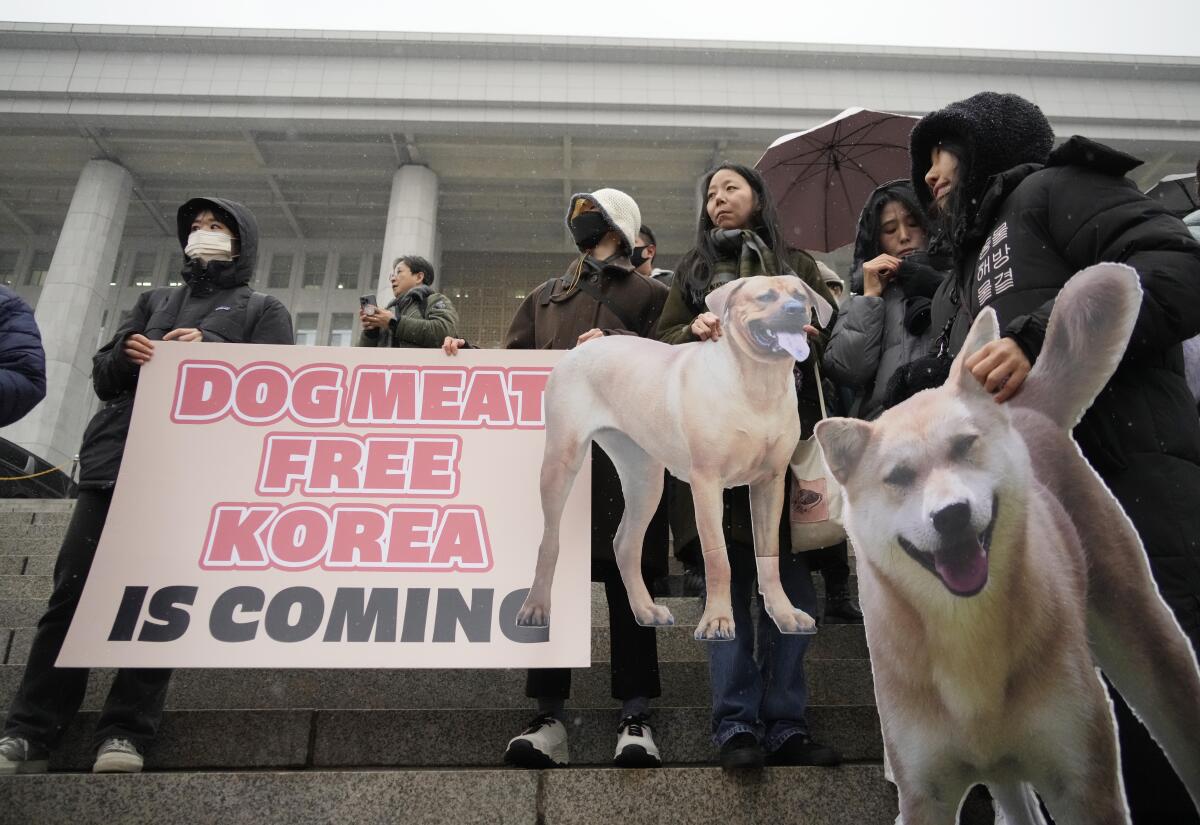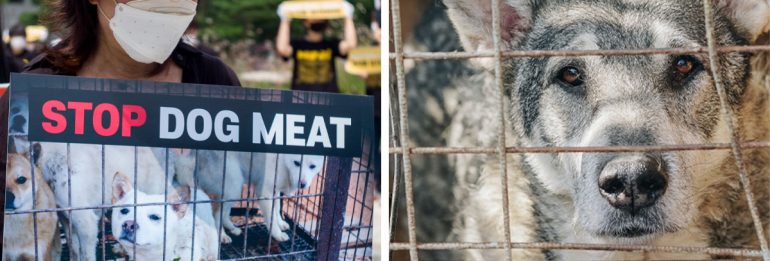From the beginning of 2027, those involved in the breeding and slaughter of dogs for meat could face a prison sentence of up to three years.
A law banning the breeding and killing of dogs for food has been approved by the South Korean Parliament. The bill was approved almost unanimously, with the support of 208 parliamentarians, with two members of parliament abstaining from voting, Reuters reported. Now this law must be signed by President Yoon Seok Yeol.
Under the new law, the maximum penalty for a person involved in killing a dog for food is three years' imprisonment and a fine of 30 million Korean won (equivalent to about $23,000), CNN reported. The decision aims to set strict guidelines for the treatment of dogs and ban their use as food, a major step in protecting animal rights in the country.
This historic move by the South Korean Parliament demonstrates the country's determination to combat the practice of breeding and killing dogs for meat purposes. It also highlights significant progress in animal rights in a country where dogs have traditionally been used for food.
Support for the law is almost unanimous, indicating that the public and lawmakers recognize the importance of animal welfare and the reluctance to support cruel practices. The entry into force of this law will be an important moment in the history of the fight for the rights and welfare of wildlife in South Korea and will gradually change cultural attitudes regarding the treatment of dogs.
The adoption of the law will also strengthen South Korea's position in the global community, where issues of animal rights and their protection are becoming increasingly relevant and important. The move could become a model for other countries and inspire similar measures to improve the treatment of animals.
Those involved in the breeding of dogs for the purpose of selling their meat as food, as well as those who knowingly purchase, transport, store or sell products made from dogs, will be subject to fines and prison terms. It is important to note that the bill does not penalize those who consume dog meat in their food, focusing on those who are directly or indirectly involved in the process of breeding, selling and distributing dogs for the purpose of consuming their meat, CNN notes.
Growing awareness: in South Korea, the majority of residents refuse to eat dog meat.
Owners of farms, restaurants and others in the dog meat industry will be given three years to close their businesses or move into another industry. According to South Korean authorities, there are about 1,100 dog farms in the country, where about half a million dogs are bred. Farmers have protested against the bill for fear of losing their jobs, which they estimate could affect up to a million people.

In recent years, South Korea has seen an increase in the number of residents who refuse to eat dog meat. According to a 2022 Gallup Korea poll, only 8% of respondents admitted to eating dog meat, a significant decrease from 27% in 2015. This indicates a change in taste preferences and a growing awareness of the importance of animal welfare.
South Korean legislation protects dogs and keeps pace with changes in public opinion
Many South Koreans, including activists and non-governmental organizations, actively advocate for a ban on the practice and work to create more humane conditions for dogs.
South Korea's legislation aimed at eliminating the dog meat industry not only reflects these changes in public opinion, but also provides legal protection for the animals. It also promotes an environment where animals are not abused or killed for food.
The gradual elimination of dog meat in South Korea is an important step towards more humane and ethical food industry practices. It also supports the desire to respect the rights and well-being of all living beings, regardless of their species.
Fighting for dogs' rights and welfare in the world: initiatives and achievements
The protection of dogs in the world is an important aspect of animal welfare and rights. Dogs have been some of man's closest and most loyal companions for centuries. They have served as faithful friends and reliable helpers in various fields, from search and rescue to escorting people with disabilities. Various organizations and initiatives exist around the world to protect dogs from cruelty and violations of their rights. These organizations work to create laws and policies that guarantee good treatment and protect dogs from needless suffering. Many countries also run adoption and care programs to help homeless dogs find homes and get the care they need. Educational campaigns about the proper treatment of dogs and the importance of spaying and neutering help to reduce the number of stray animals and overpopulation problems. Protecting the world's dogs is not only a matter of ethics, but also of social responsibility. Ensuring their safety and welfare contributes to a more harmonious and just society, where every living being has the right to a life free from cruelty and gratuitous suffering.

